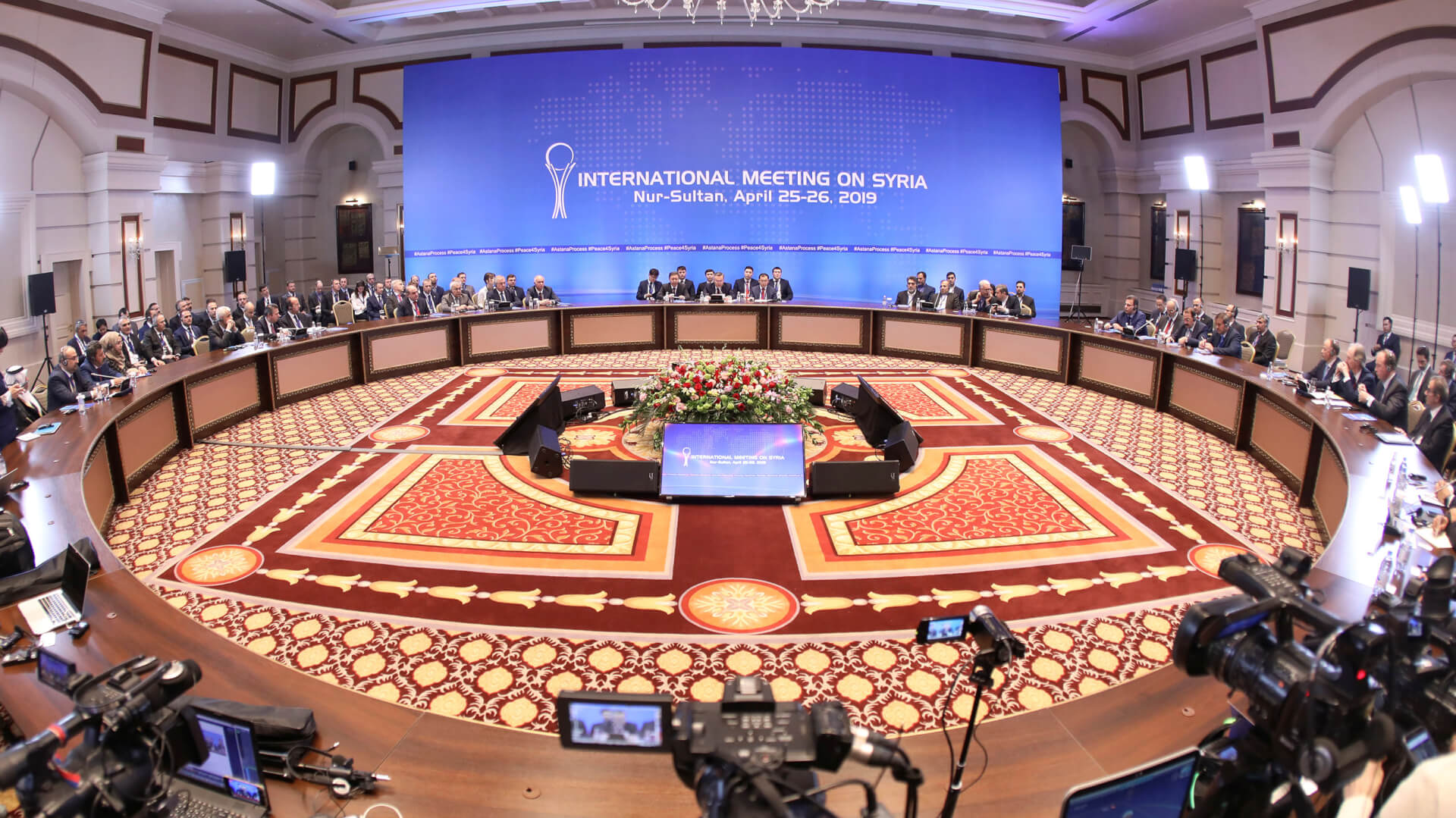In a joint statement issued on Wednesday following the 15th Astana format talks in Sochi, Russia, Iran, and Turkey reaffirmed their “continued commitment to the sovereignty, independence, unity and territorial integrity of the Syrian Arab Republic.”
The Astana platform serves as a forum for negotiations among conflict parties involved in Syria’s civil war. Though it was originally established in 2017 in Kazakhstan’s capital Astana (now known as Nur-Sultan) to complement United Nations (UN)-backed peace efforts, the format functions as an alternative to UN discussions.
As the guarantor countries of the Astana process, Moscow, Tehran, and Ankara all participated in the meetings, along with representatives of countries that hold observer status within the format, namely Iraq, Lebanon, and Jordan. A delegation from the UN also attended the talks, headed by the Special Envoy of the UN Secretary-General for Syria, Geir Pedersen. Delegations from the UN High Commissioner for Refugees (UNHCR) and the International Committee of the Red Cross (ICRC) were also present. The United States (US), despite being sent an invitation, did not attend. The summit aimed to look at the situation on the ground in Syria, as well as efforts to draw up a new constitution for the country ahead of the upcoming national elections.
Russia, Iran, and Turkey in their declaration condemned terrorism in Syria and reiterated their determination to fight and eliminate terrorist groups associated with al-Qaeda, the Islamic State (IS), and other entities, and vowed to confront various separatist movements that threatened not just Syrian sovereignty and territorial integrity, but also the national security of its neighbours. The countries also denounced the ongoing Israeli military attacks in Syria and called for the cessation of all hostilities, which they said were in clear violation of international and humanitarian law.
Emphasising their commitment to a Syrian-led political process under the auspices of the UN, the countries also drew attention to the humanitarian situation in Syria, which has only gotten worse due to the COVID-19 pandemic. The three countries also “rejected all unilateral sanctions which are in contravention of international law, international humanitarian law, and the UN Charter”. They further called on the international community to expand emergency aid to the nation “without discrimination, politicization, and preconditions” by ensuring the proper vaccination of the Syrian people, implementing projects that helped rebuild critical infrastructure—such as water and power supply facilities, schools and hospitals—and facilitating the safe and voluntary return of internally displaced Syrian refugees. Additionally, the trio said that they would continue cooperation on the release of detainees, the handover of the dead, and the search for missing persons.
The next international meeting on Syria in the Astana format will take place in Nur-Sultan, Kazakhstan, in mid-2021.
Russia, Iran, and Turkey Reaffirm Strong Commitment to Syrian Sovereignty and Independence
The joint statement came following the 15th Astana format talks in Sochi, Russia.
February 18, 2021

Officials attend a session of the peace talks on Syria, Nur-Sultan, Kazakhstan, April 26, 2019. SOURCE: REUTERS via AL-MONITOR
